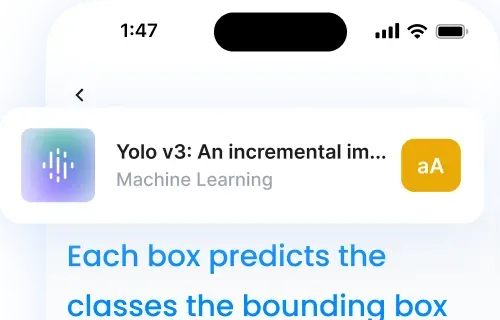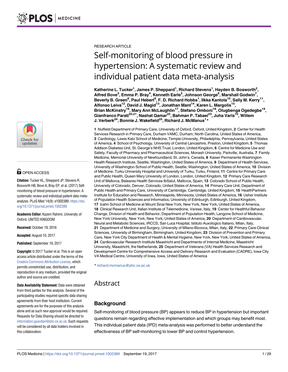In today’s competitive educational landscape, many students need financial assistance to pursue their academic dreams. While federal student loans are often the first choice, some students may need to turn to private student loans to cover the remaining costs.
This is where a cosigner can play a crucial role in helping a student secure the funds they need for their education. But what exactly does it mean to be a cosigner, and what responsibilities come with this role? Let’s dive deep into the world of student loan cosigners and explore everything you need to know about cosigning a student loan.
What is a Cosigner and Why Do Students Need One?
A cosigner is someone who agrees to take on the responsibility of repaying a loan if the primary borrower is unable to do so. In the context of student loans, a cosigner is often a parent, guardian, or other trusted individual with a strong credit history who agrees to cosign a private student loan application.
Many students need a cosigner for private student loans because they often lack the credit history or income necessary to qualify for a loan on their own. By adding a cosigner with good credit, students can:
1. Increase their chances of being approved for a private student loan 2. Potentially qualify for better loan terms, including a lower interest rate 3. Build their credit history by making on-time payments
Private student loans are credit-based, which means lenders look at the borrower’s creditworthiness when deciding whether to approve a loan and what terms to offer. Since most students don’t have an established credit history, a cosigner can help them obtain a private student loan and secure more favorable terms.
The Responsibilities of Cosigning a Student Loan
When considering whether to cosign a student loan, it’s crucial to understand the responsibilities that come with this decision. Here are the key points to keep in mind:
Equal Liability
As a cosigner, you are equally responsible for repaying the loan. This means that if the student borrower fails to make payments, you will be obligated to repay the loan. The borrower and the cosigner are equally responsible for ensuring the loan is paid back on time.
Credit Impact
The loan will appear on your credit report, and any late payments or defaults will negatively impact your credit score. This can affect your ability to obtain other types of credit, such as a mortgage or car loan, in the future.
Long-term Commitment
Cosigning a student loan is typically a long-term commitment, often lasting for the entire loan term, which can be 10 years or more. It’s important to consider whether you’re prepared for this extended financial responsibility.
Financial Obligation
You may need to repay the loan if the student borrower is unable to do so, which could impact your financial situation and ability to qualify for other loans in the future. This means you should be financially prepared to take on the loan payments if necessary.
Limited Options for Removal: It can be challenging to remove yourself as a cosigner once you’ve agreed to cosign the loan. While some lenders offer a cosigner release option, the conditions for release can be strict and are not guaranteed.
The Risks of Cosigning a Student Loan

While cosigning a student loan can help a student obtain the funds they need for their education, it’s important to consider the potential risks:
Damaged Credit
If the student borrower misses payments or defaults on the loan, your credit score could suffer significantly. Late payments or defaults on cosigned student loans can have a long-lasting impact on your credit report.
Financial Strain
You may be required to repay the loan if the student borrower cannot, which could put a strain on your finances. This could affect your ability to meet other financial obligations or save for your own goals.
Relationship Stress
Financial issues can strain relationships, potentially causing tension between you and the student borrower. It’s important to have open and honest communication about the loan and repayment expectations.
Limited Borrowing Capacity
The cosigned loan will be factored into your debt-to-income ratio, which could affect your ability to qualify for other loans, such as a mortgage or car loan. This might limit your financial flexibility in the future.
Legal Responsibility
As a cosigner, you are legally responsible for the loan, which means lenders can pursue legal action against you if the loan goes into default. This could result in wage garnishment or other legal consequences.
Benefits of Cosigning a Private Student Loan
Despite the risks, there are several potential benefits to cosigning a private student loan:
Helping a Student
By cosigning, you can help a student access the funds they need to pursue their education. This can be a meaningful way to support a loved one’s academic goals.
Better Loan Terms
Your good credit can help the student qualify for better loan terms, including a lower interest rate. This can potentially save the student thousands of dollars over the life of the loan.
Building Credit
If the student borrower makes payments on time, it can help build their credit history. This can be beneficial for their financial future, helping them establish a strong credit profile.
Potential for Cosigner Release
Some private student loan lenders offer a cosigner release option after a certain number of on-time payments. This means you might be able to be removed from the loan after the student has demonstrated responsible repayment.
How to Decide Whether to Cosign a Student Loan
Assess your financial situation. Can you handle the loan if the student can’t repay it? Review your budget and consider how this potential debt affects your financial goals. Discuss the student’s repayment plans and evaluate their future income potential. Consider their chosen field of study and job prospects to gauge their ability to repay the loan.
Explore all alternatives before private loans. Federal student loans and scholarships should be exhausted first. Federal loans offer more flexible repayment options and don’t require cosigners. Understand the loan terms thoroughly. Review interest rates, repayment period, and cosigner release options. Know what you’re committing to before signing.
Consider how cosigning might affect your relationship with the student. Financial matters can strain personal connections. Maintain open communication about expectations and responsibilities. This helps preserve your relationship throughout the loan period. Cosigning is a significant financial and personal commitment. Weigh all factors carefully before making your decision.
Alternatives to Cosigning a Private Student Loan
If you’re hesitant to cosign a student loan, consider these alternatives:
1. Federal student loans: Encourage the student to maximize these options. They don’t typically require a cosigner. Start by completing the FAFSA. 2. Scholarships and grants: Help the student find and apply for these non-repayable funds. Many are available based on merit, need, or specific talents. 3. Work-study programs: These provide part-time jobs for students with financial need, helping them earn money for education. 4. Parent PLUS Loan: For parents, this federal loan can be an alternative to cosigning a private loan. It offers some federal loan protections. 5. Gap year or part-time study: Suggest taking time to work and save, or studying part-time to reduce costs. This can help accumulate funds without heavy reliance on loans.
Tips for Cosigners of Student Loans
If you decide to cosign a student loan, follow these tips:
1. Communicate openly: Stay in touch with the student about their academic progress and finances. Regular check-ins help address issues early. 2. Monitor the loan: Keep track of loan status and payment history. Use lenders’ online portals to stay informed. 3. Promote responsible borrowing: Guide the student to borrow only what’s necessary. Explain loan terms and the importance of minimizing debt. 4. Plan repayment: Help create a realistic repayment strategy, including post-graduation expense management and loan payment prioritization. 5. Consider life insurance: The student might get a term life policy with you as a beneficiary to cover the loan in case of unexpected events. 6. Keep records: Save all loan documents and correspondence. These may be crucial if disputes arise later.
Understanding Cosigner Release
Many private student loan lenders offer a cosigner release option, which allows the cosigner to be removed from the loan after certain conditions are met. Typically, these conditions include:
1. A set number of on-time payments (often 12 to 48 months) 2. The student borrower meeting credit and income requirements 3. The student borrower applying for cosigner release
It’s important to note that cosigner release is not guaranteed, and the student borrower must qualify to take on the loan independently. When cosigning, discuss the lender’s cosigner release policy and encourage the student to work towards meeting the requirements for release.

The Impact of Cosigning on Your Credit
Cosigning a student loan can have both positive and negative effects on your credit:
Positive impacts:
- If payments are made on time, it can add to your positive payment history
- It can diversify your credit mix, which can be beneficial for your credit score
Negative impacts:
- The loan amount will be added to your total debt, potentially increasing your debt-to-income ratio
- Late payments or defaults will negatively impact your credit score
- The inquiry for the loan application may temporarily lower your credit score
Remember, as a cosigner, you’re putting your credit on the line. It’s crucial to ensure that the student borrower understands the importance of making payments on time to protect both of your credit scores.
What Happens if the Student Can’t Pay?
If the student borrower can’t make payments on the loan, as a cosigner, you are legally responsible for repaying the loan. In this situation:
1. The lender will contact both the student borrower and the cosigner about missed payments 2. You may need to step in and make payments to prevent the loan from going into default 3. Your credit score may be negatively impacted if payments are missed 4. The lender may take legal action against both the student borrower and the cosigner to recover the debt
To avoid this situation, it’s crucial to maintain open communication with the student borrower and address any potential repayment issues early. If the student is struggling to make payments, explore options such as income-driven repayment plans (for federal loans) or deferment or forbearance options (which may be available for some private loans.
Making an Informed Decision about Cosigning a Student Loan
Cosigning a student loan is a significant decision that carries both potential benefits and risks. By understanding the responsibilities involved, carefully considering your financial situation, and maintaining open communication with the student borrower, you can make an informed decision about whether cosigning is the right choice for you.
Remember, while cosigning can be a powerful way to help student access the funds they need for their education, it’s essential to approach the decision with caution and a clear understanding of the long-term implications. Always explore all available options, including federal student loans, scholarships, and grants, before turning to private student loans that require a co-signer.
Ultimately, the decision to cosign a student loan should be based on a careful evaluation of your financial stability, your relationship with the student borrower, and your willingness to take on the potential risks and responsibilities associated with being a co-signer. By taking the time to fully understand what it means to be a student loan cosigner, you can make a decision that supports the student’s educational goals while protecting your financial well-being.









